Dakar 2 summit: Africa’s agrifood system and triple Helix
[ad_1]
By Yemi Akinbamijo
THE year 2023 started on a high note for all African food and nutrition security visionaries and all well-meaning supportersof the Feed Africa initiative. They heeded the callof the President of the African Development Bank to converge at the Feed Africa Summit dubbed Dakar 2 under the high patronage of the President of the Republic of Senegal H. E President Macky Sall who, apart from being the president of the African Union for the waning year, very aptly has the theme for the Union hinged on Food and Nutrition Security for 2022/23. In its own class, it would be the second high-levelforum on the African food question. This is a perennial going concern for Africa because of the pivotal role of Sustainable Development Goal #2 and the domino effect it has on the realization of the remaining 16 SDGS.
With only eight years to 2030, there seems to be no time to lose, and the urgency could not have been stronger than what played out in Dakar from the 25thto the 27th of January where 34 heads of stateand governments on the continent came together to deal decisively with the African food issue like never before.Bring the political clout of the Government of Senegal (and the Chairperson of the African Union) and the magnum force of the AfDB and its charismatic President Adesina whose burning passion is ‘Feed Africa!’ and the grand slam political will of the African Union, and what you get is the resultant shifts in the tectonic plates of Africa’s food insecurity becoming insecure, as they begin to quake and rumble as it happened in Dakar 2. So, the rumblings did begin in Dakar for the final onslaught.
The Dakar 2 event came rushing like an avalanche of energies unleashed at injury time for a trophy that must be won or lost now or never. At the last count with supercharged 72 hours, some 2000 humans were all it has taken to shift this needle.Dakar 2 was the cauldron of Africa’s best. If there was a time when all the forces were aligned in favour of the much talked about agricultural transformation in Africa, it would be the Dakar 2 Summit. In sympathy with the call for transformation in Africa’s agriculture, the emerging Dakar megalopolis-in-transition hosted the strongest defining moment of the continent’s agriculture. Last year was encumbered with very high-level discussions on the implications of the CGIAR reform exercise and how Africa should be optimally positioned in a way that confers a win-win scenario for all parties. It does present as if all the instruments are tuned and set for the grand command performance in the African agricultural domain. It will be difficult not to see tangible progress given the alignment of forces and the impetus provided by Dakar 2.
All the development partners and global leaders were on deck prodding Africa to victory over food insecurity. Of honorable mention is the presence of the President Michael D Higgins of Ireland and his wife. His compelling love for the continent was evident from his gusto in his voice, defying the burden of age speaking passionately from his heart on why no one in Africa ought to feel hunger. The consensus was that it was time for Africans to feed Africa. The convergence of the constellation was too strong to be ignored. We do so at our peril. The congregation in Dakar was deliberate coming after the 2015 meeting in the same venue in Dakar. It was akin to a musical ensemble in the finest mastery of their scores. Then Dakar 2 closed with the promise of a new horizon for Africa. We have found the right track and the leadership skillset at last. We hadan unprecedented forty-one Compacts that are intentional on what, where, who, when, and how. The score is clear enough on the melody, let us now go ahead withthe harmony. That was the message – as clear as a bell.
In what seemed like a monumental showdown, the much-talked-about Dakar 2 Summit all too soon is done and dusted. it was no mean feat galvanizing these 34 heads of state the African Union, the one CGIAR, etc, to have this three-day discourse on getting the African food question sorted. There was the goodwill and the good wind in the sail; Africa must now take to the sea. The new players – SAPZ, CAAPs, One CGIAR, XP4 fraternity, 41 Compacts and associated stakeholders/investors all fully geared and engaged. This wave needs to be sustained as we cannot continue to celebrate ripples when what we need is a tsunami and all holds must be unbarred for Africa to be truly unleashed.Earning the promise will be a function of our ability to carry through the vision.
Finishing the unfinished agenda
The stage was fully propped and set at the CICADDiaminiadoon, the outskirts of the iconic city of Dakar now bursting at theseams. Dakar 2 was hosted at the CICAD tucked away from the hustles and bustles of the Dakar-Sally highway. Indeed, success is never by default. It must be intentional – a piece at a time, a building at a time, one by one, line by line; playing it by the script. A new Dakar is emerging with modern infrastructure. A sheer demonstration of the unflinching commitment to development with a pristine master plan without the all too familiar innuendos and obfuscations of many-a-model of failed attempts at national transformation.It was all in empathy with its physical infrastructural development and Dakar has again played host to Africa’s food conundrum – the stomach infrastructure question. It happened in the very place where it all began with the first episode of the first summit that was held in 2015. Dakar 1 was an intentional convening of the forces that must shift Africa’s food and nutrition security needle. Aptly put, Dakar I was the turning of the sod for Africa’s agricultural transformation. It took a colossal momentum to break the political administrative and social frictions that held Africa bound in needless poverty and penury.
The outcome is that the goodness of the TAAT (Technologies for African Agricultural Transformation) is there for us to see. African agricultural transformation shifted a lot of stuff from the shelf to the market so through the instrumentation of the science fraternities of Africa’s national agricultural research systems, the sub-regional organizations, the Forum for Agricultural Research in Africa and the CGIAR.
Going Forward – new kids on the blocks
The progress will be in the policies, practices and processes that follow Dakar 2. Between the promise and the future position is the process. Otherwise, where we stopped would be the same as where we started – going in circles. The cockmust crow; thereafter it will walk away. Let him that is asleep respond to the cock.
The burgeoning question defying every wit was not ‘how did we get here’ but ‘what is keeping us there’? All the leaders alluded to a parody of the African misery of want in the midst of plenty! Indeed, no one eats potentials!The strongest signal in recent memories is that the leadership of Africa is taking the food question very seriously and confronting this monster head-to-head,foot-to-foot.One of the strongest indications in recent times that portends Africa’s dogged effort towards the attainment of food security sovereignty closed in the iconic city of Dakar, Senegal. It was the gathering of the Titans. It should not be rocket science to fix the persistent emptiness of Africa’s kitchens.The ingredients are all complete and not in short supply the broth therefore must be delicious if the skill of the chef is good. We had the ubiquitous political wills, the development partners and donor representatives, science fraternities, enablers and financial institutions, and civil societies.
Following the second Abidjan high-level session, a Communique has been elaborated and fully endorsed for implementation by the four principals. That in itself is good progress, and we are grateful for the guidance provided at every stage by the principals. The fulfillment of the promise of Dakar 2 would be contingent on various ancillary factors. These factors have also taken on their own life emerging nicely by the script. First off, Marco Ferroni the erstwhile Chair of the CGIAR System Board had done a great job of maneuvering the not-so-easy institutional retooling of the CGIAR. It was not the fanciest task with so many push and pull and a host of moving parts all competing for attention at the same time. As of January 2023, the transition in the leadership of the CGIAR was concluded. Lindiwe Majele Sibanda would become the first African and first female to hold the reins of the largest public-funded Agricultural Science body in the world. As an African, the pressure is also on the Zimbabwe-born Sibanda to take the global body to its next level. There is no doubt that she will perform pristinely as she did in her former capacity as the Board Chair of the International Livestock Research Institute. She joins Claudia Sadoff (Executive Managing Director -One CGIAR) and a host of other globally recognized scientists in their own rights in the System Leadership Team. The strongest impulse for me has been the appointment of three African Directors General Designate for the three One-CGIAR institutions in Africa. These are Drs Simeon Ehui (Ivory Coast), Boubacar Maneh (The Gambia) and ProfessorAppolinaire Djikeng (Cameroon) for IITA, Africa Rice and ILRI respectively. In line with the reform of the One CGIAR, these new appointees will also dual hat with other functions in resonance with the demands of the reform. We wish them Godspeed and good health in the delivery of their respective mandates. Africa must now feed Africans!
The science behind Africa’s agriculture
With the much-talked-about one CG reform and how it would play out in Africa, the principals have pronounced themselves in the communique but were published late last year in which the African Union Commission the African Development Bank the CGIAR and the Forum for Agricultural Research in Africa (FARA) committed to core values and principles of the reform. Of significance is the Action Plan that is now being elaborated by the CGIAR and FARA.
The progress in the process has been commendable. Nothing would be of greater help to the accomplishment of the communique than the outcomes of the Dakar 2 summit. Although they had evolved independently, the much-desired synergy of purpose is only akin to the harmonic embellishments between the CGIAR initiative and the Feed Africa summit being well played. Of course, when the elephant dies all kinds of knives will emerge. Given the progress made on the CGIAR front, it was most reassuring to hear the refreshing vision of the new leadership of the CGIAR. Lindiwe Sibanda, Claudia Sadoff, and the full complement of the Directors General designate for IITA, Africa Rice and ILRI, the board chair of the Forum for Agricultural Research in Africa Director General of IITA, and more bear testimony to the magnitude of seriousness with which Africa is matching its food needs. The trio of Drs Ehui, Mane, and Professor Djikeng is one of the best things that has happened to African Agriculture in recent times. The onus is now on Africans leading Africa for Africa to feed Africa. This intrinsically puts Africans in charge of their own destiny for the first time in the feed Africa agenda of the African Development Bank and these alignments could not have been more instructive.
In Dakar,when Africa came home to its town hall meeting, it made thebiggest, brightest, and boldest move towards breaking the food conundrum of Africa -the son of the soil, nay the son of the Nile is thirsty! (Ethiopian proverb).Africa came to a monumental watershed in Dakar with an unprecedented gathering of the leaders of the continent with the support of the development partners finally taking the definitive step. If this convergence of forces will not nail it, I wouldn’t know what else will.
The leaders did not have to do it but they did it all the same and they all demonstrated their solid inner coresby burning the midnight oil so that Africa can sleep easily.Voices with a vision I crouched and cringed as Adesina belched out his compelling modicum. According to him, truly the neck of the African baby has been misaligned for ages. it has become the new normal but somewhat, the moment has arrived whenall of a sudden, we are re-writing the narrative and righting the wrongs.
Dakar 2 gave the needed impetus for the home run. For the first time, Africa seems poised from all angles to give the final push to the birth of a food-secure Africa.
The tale of the two Compacts
The agricultural landscape is not new to the use of ‘Compacts’ as a register. Contrasting with the very well-known (defunct)CAADP Compacts, the word has been used interchangeably to mean different things to different people at different times. Within the context of Dakar 2, the word Compact deployed a unique appeal. It was the concerted conversation around the clear road map towards the food sovereignty of a particular nation. The choice of commodities was intentional. The means to the end were also clear. It was the promise of a process whose fulfillment would entail the engagement of a multiplicity of actors and partners. One of the defining miens of the compacts was that they were convened in a business-like fashion in forums dubbed the Boardroom chaired by the Heads of state. It was gladdening to see President MackySall and his team ironing out the details of the Senegalese Compact like many others.
Engaging the process after the promise is the swim or sink litmus test of the gravitas of Dakar 2. We are all awaiting what will happen in the coming days. Ahead of the 36th Ordinary Summit of the African Union Summit of Heads of State and Governments, there will be the CAAPs Roundtable. It is interesting to note that in addition to the SAPZ, the CAAPs have been referenced by some compacts.
Leadership Calls and Quotes
- I consider it a shame that after 60 years of Africa’s independence, the leaders of the continent are gathered again to discuss food insufficiency said H. E William Ruto, the President of the Republic of Kenya.
- Give us this day Our Daily Bread is the strongest indication of food and nutritional security in the exhortation of the President of Madagascar
- To continue to fantasize about Africa’s wealth and natural resources is akin to drinking soup with a fork –Jeanine Millie Cooper (Minister of Agriculture, Government of Liberia)
- No man is worth greater accolade than he who is unblocking African food pipes.
My tail piece and the unpalatable oxymorons
For more than 60 years, that is for as long as I have been alive, Africa has begged for food starting with the US aid dried milk (Pau) that I grew up on in 1965.Today as a grandfather and lead advocate for agricultural research and development on the continent, the situation has not shifted because Africa is still begging for food and more. You can say that‘something’ was wrong; and we can talk about fixing the ‘something’. But the truth is there had been nothing (no ‘something’) to fix during these past decades!
I wondered how I had dreams aftermy graduation as one of 120 conferred with a Bachelor of Agriculturedegree in 1984 for food and nutrition secure and food self-sufficient Africa. That is now a mirage in retrospect. We need to fix these flaws before the kids wake up although they are already awake. And like a part of a scene poorly written in which we must all now play – the tacit comedy of errors.
It is not wrong to be lost. We all do get lostonce in a while. But to have been lost and left without a robust game plan for getting back on track is not just a social or political disaster, it is a social suicide. For now, we do know that it was the other side of the food question coin that got sorted in Dakar.With the new blood infused in the leadership of the Science institutions, the stage seems set with zero tolerance for failure. Let’s do this together, Let us Feed Africa!
- Dr. Akinbamijo, Executive Director of the Forum for Agricultural Research in Africa (FARA), is based in Accra, Ghana.
ALSO READ FROM NIGERIAN TRIBUNE
[ad_2]


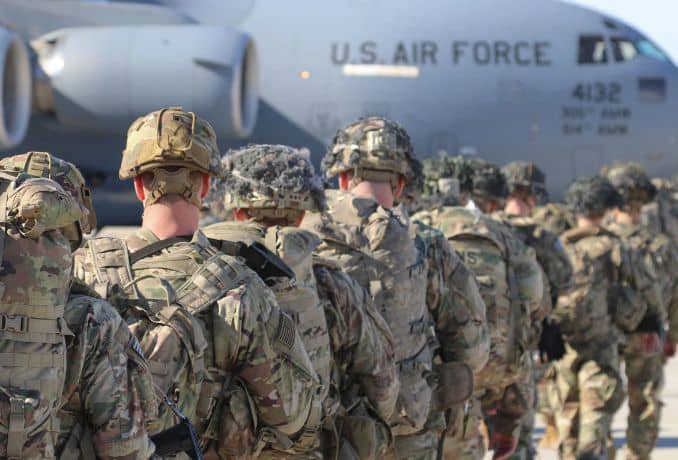
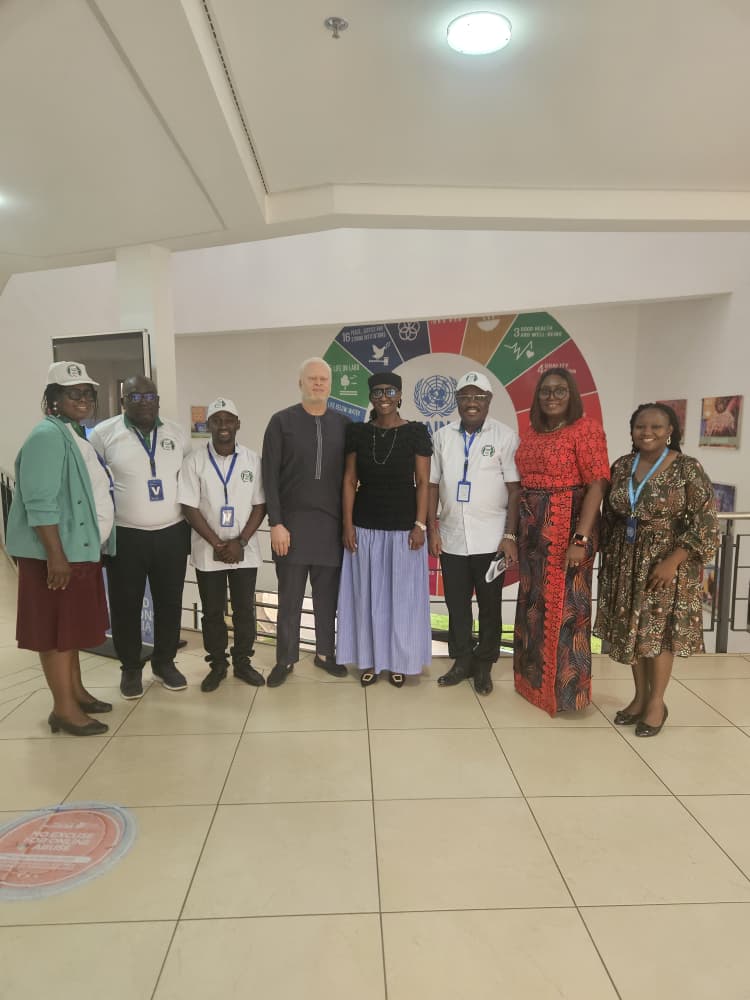

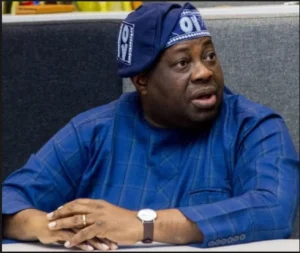
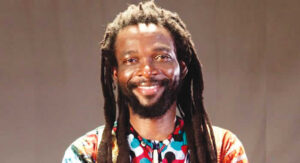
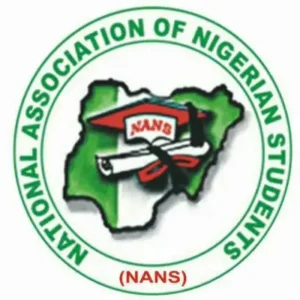

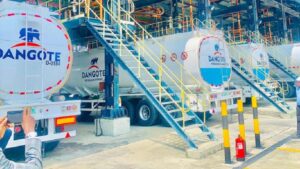


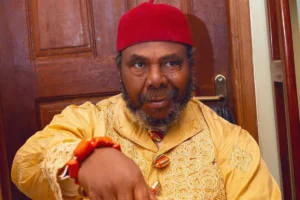
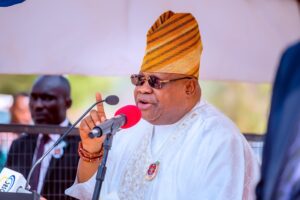
Post Comment